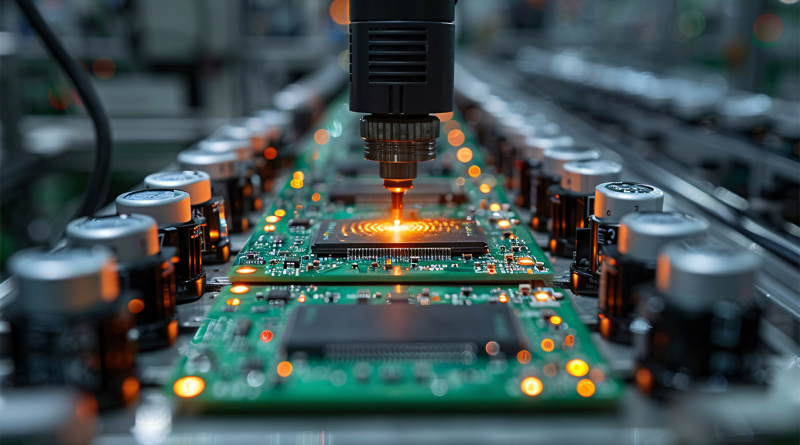TSMC Ramps up European Chip Manufacturing with Plans for Multiple Plants by 2027
Taiwan Semiconductor Manufacturing Company (TSMC), the world’s largest contract chipmaker, is making significant moves to expand its footprint in Europe’s semiconductor industry. Historically concentrated in Taiwan, TSMC is diversifying its global operations, largely driven by geopolitical tensions with China.
The company broke ground on its first European semiconductor fabrication plant in Dresden, Germany, in August 2024. Representing an investment of over €10 billion, this facility is set to produce chips primarily for the automotive and industrial sectors. Taiwan’s National Science and Technology Council Minister, Wu Cheng-wen, confirmed that TSMC is planning multiple fabs across Europe, signaling a robust commitment to the region. While no specific locations have been announced for future plants, the Dresden project sets the stage for TSMC’s deeper integration into the European market, supported by key partnerships with Bosch, Infineon, and NXP. TSMC’s expansion aligns with the EU’s Chips Act, a program designed to boost Europe’s chip manufacturing capabilities.
Pioneering Semiconductor Manufacturing for Europe
Dresden, Germany, known as “Silicon Saxony,” was a strategic choice for TSMC’s first European fab. The city boasts a strong semiconductor ecosystem, supported by global players like Bosch and Infineon, both of whom are partners in the Dresden project. With a total investment of over €10 billion, the German government will provide half of the funding, facilitated by the EU’s drive to attract high-tech manufacturing.
This state-of-the-art plant will focus on producing chips using advanced process technologies, including 28nm, 22nm, and 16/12nm nodes, crucial for automotive and industrial applications. Once operational in 2027, the plant is expected to produce 40,000 silicon wafers per month, further solidifying Europe’s role in the global semiconductor supply chain. Dresden’s role as a semiconductor hub will help TSMC meet the growing demand for automotive chips, driven by the rapid rise of electric and autonomous vehicles.
TSMC’s Focus on Artificial Intelligence Chips
Central to TSMC’s European expansion is its focus on producing chips for artificial intelligence (AI) applications. Global demand for AI chips is skyrocketing, with key customers like Nvidia and AMD leading the charge. The Dresden facility will play a pivotal role in addressing this demand, as AI applications require high-performance semiconductors developed using advanced process technologies.
The booming AI chip market has significantly boosted TSMC’s financial growth. The company is expected to report a 40% profit increase in the third quarter of 2024, driven by surging AI chip sales. In September 2024 alone, TSMC reported a 39.6% revenue spike, reflecting the rapidly growing importance of AI in its business strategy.
Geopolitical and Market Drivers Behind TSMC’s Expansion
Geopolitical considerations are central to TSMC’s decision to expand beyond Taiwan. Rising tensions between China and Taiwan have prompted the company to diversify its manufacturing footprint. Europe, with its strong industrial base and government support through initiatives like the Chips Act, presents an ideal opportunity for TSMC to reduce its reliance on Taiwan.
This expansion also allows TSMC to capitalize on Europe’s growing demand for semiconductors. The EU currently produces only 10% of the world’s semiconductors, but its automotive and industrial sectors are significant consumers. TSMC’s new plants will help the region increase its semiconductor production to 20% of the global market by 2030.
Potential Collaborations and Expansions
TSMC’s Dresden plant is just the beginning of its European journey. The company is already considering additional fabs in Europe, depending on market demand and opportunities. Collaborations with established European semiconductor companies like NXP and Infineon could further accelerate TSMC’s growth in the region.
The Czech Republic has emerged as a potential site for future expansion, with Prague showing interest in attracting TSMC investments. These expansions would reduce TSMC’s reliance on any single region, strengthening its global manufacturing base while positioning it as a key player in Europe’s evolving semiconductor landscape.
Sources:
